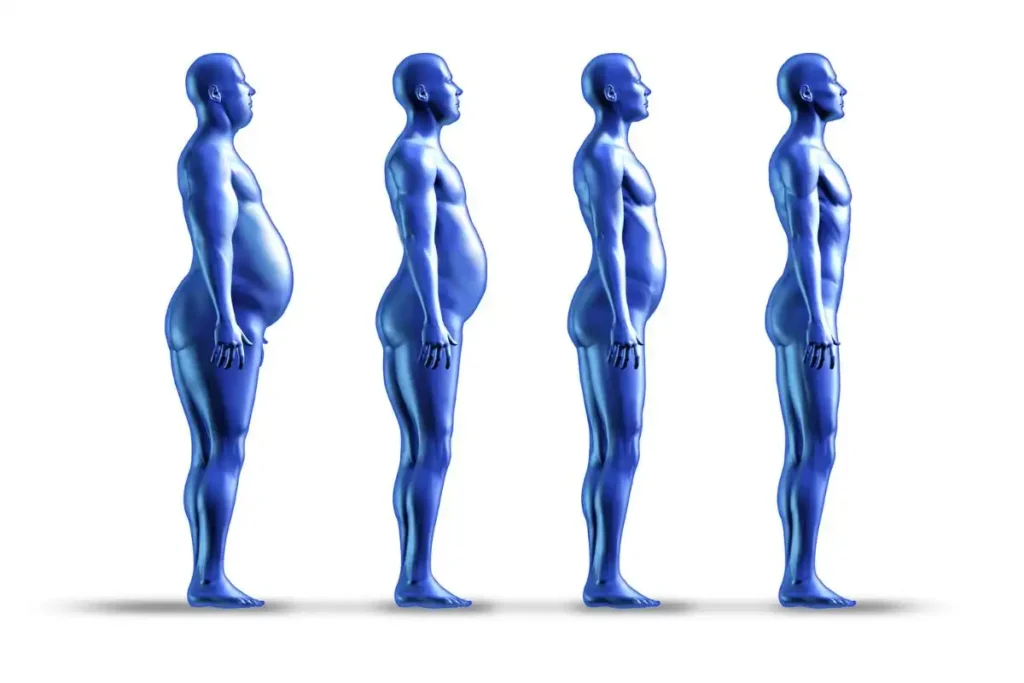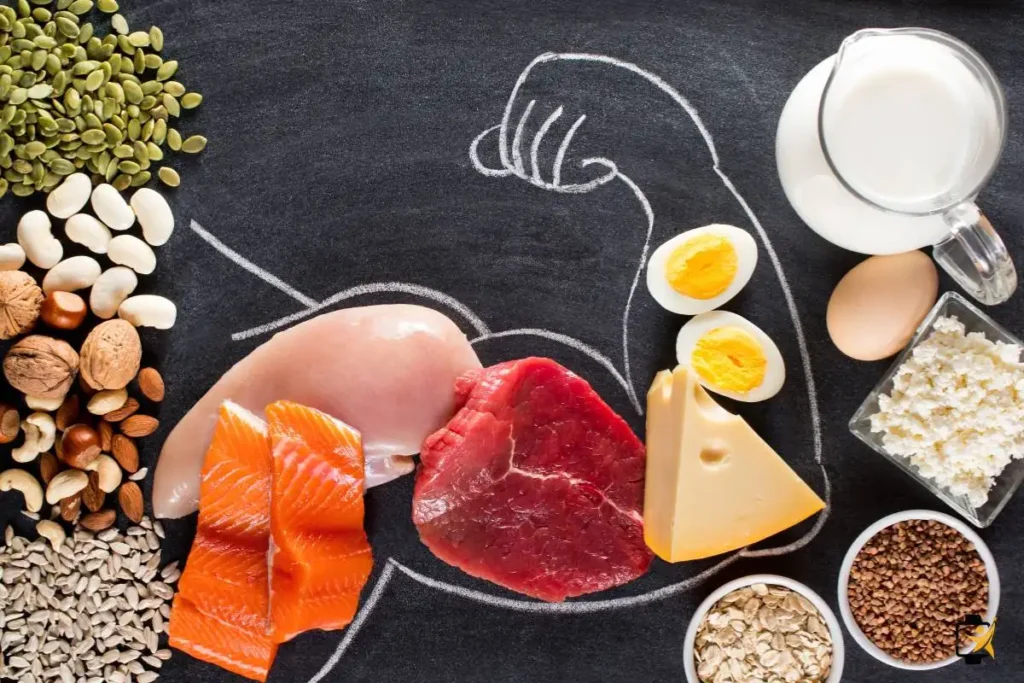As we age, our nutritional needs shift, and maintaining good health becomes increasingly crucial. A carefully planned vegan diet can be a nourishing and fulfilling choice for seniors, offering a wealth of health benefits and contributing to a vibrant, active lifestyle.
This comprehensive guide will delve into the intricacies of vegan diets for older adults, addressing concerns, debunking myths, and providing practical tips for a successful transition.
Benefits of a Vegan Diet for Seniors
The foundation of any dietary choice lies in understanding its benefits. For seniors, vegan diets for older adults bring with them a multitude of advantages that can significantly enhance overall health and well-being.
Heart Health
Heart disease is one of the leading causes of mortality among seniors. Adopting a plant-based diet can significantly reduce the risk factors associated with heart disease. A vegan diet typically contains fewer saturated fats and no cholesterol, which can lead to healthier blood cholesterol levels and less plaque buildup in arteries.
Incorporating whole grains, fruits, vegetables, and legumes lowers blood pressure and improves endothelial function — both critical factors in maintaining heart health. Additionally, many plant foods are rich in antioxidants, which combat oxidative stress, a significant contributor to heart disease.
The integration of foods like avocados, nuts, and seeds ensures that seniors get healthy fats, promoting cardiovascular well-being.
Weight Management
Another prominent benefit of a vegan diet is its role in facilitating weight management. As metabolism slows down with age, it becomes essential to maintain a balanced caloric intake. Plant-based foods are generally lower in calories and higher in fiber than their animal counterparts, making it easier to consume nutrient-dense meals without overloading on calories.
Fiber not only aids digestion but creates a feeling of fullness, reducing snacking and overeating tendencies. By focusing on nutrient-rich foods, seniors can manage their weight more effectively, which in turn reduces the risk of obesity-related diseases such as type 2 diabetes and hypertension.
Diabetes Control
Diabetes is another prevalent concern among the elderly population. Plant-based nutrition offers an effective approach to managing blood sugar levels. Foods rich in fiber helps stabilize blood sugar by slowing the absorption of glucose into the bloodstream.
Many plant-based foods have a low glycemic index, meaning they do not cause rapid spikes in blood sugar levels. Including legumes, whole grains, and colorful vegetables in daily meals helps maintain optimal glucose control. Seniors can significantly lower their risk of developing type 2 diabetes or improve existing conditions by embracing a vegan lifestyle.
Reduced Risk of Certain Cancers
Research indicates that a plant-based diet may lower the risk of specific cancers, particularly colorectal and breast cancer. Phytochemicals found in fruits, vegetables, and whole grains possess anti-cancer properties that help neutralize harmful free radicals in the body.
Vegan diets promote high consumption of antioxidant-rich foods, playing a pivotal role in cancer prevention. By opting for whole foods over processed options, seniors can significantly reduce inflammation within their bodies, further decreasing cancer risk.
Improved Digestion
Digestion can often become a challenge as people age. A high-fiber vegan diet fosters digestive health by ensuring regular bowel movements and preventing constipation. Fruits, vegetables, legumes, and whole grains provide ample dietary fiber, which is essential for a healthy gut.
A vegan diet can encourage a diverse microbiome, promoting better digestion and nutrient absorption. Probiotic-rich foods, such as fermented plant-based options, can also enhance gut health, further supporting the aging process.
Increased Energy Levels
Many seniors experience a decline in energy as they age, but transitioning to a vegan diet doesn’t need to contribute to this issue. On the contrary, a diet rich in vitamins, minerals, and antioxidants can help maintain vitality.
Fruits and vegetables provide essential micronutrients contributing to energy production at the cellular level, while protein sources like legumes and nuts support muscle maintenance. Staying active and consuming a varied selection of plant-based foods can empower seniors to embrace an energetic lifestyle.
Addressing Nutritional Concerns on a Vegan Diet
While the benefits of a vegan diet are numerous, it is crucial to address potential nutritional deficiencies that may arise from excluding animal products. Seniors should be aware of specific nutrients that require careful consideration and supplementation.
Vitamin B12
Vitamin B12 is predominantly found in animal products and is fundamental for proper nerve function and red blood cell formation. A deficiency can lead to anemia and neurological disorders, which are especially concerning for older adults.
Seniors following a vegan diet should prioritize fortified foods, such as cereals, plant milk, and nutritional yeast, which deliver adequate amounts of B12. Moreover, consulting a healthcare provider about B12 supplementation is advisable to ensure sufficient intake.
Calcium and Vitamin D
Calcium and vitamin D play vital roles in maintaining bone health. As seniors age, the risk of osteoporosis increases, making adequate calcium intake imperative. Fortunately, there are various plant-based sources of calcium, including leafy greens (like kale and bok choy), broccoli, almonds, and fortified plant milk.
Vitamin D, on the other hand, can be synthesized through sunlight exposure; however, many older adults may not receive enough sun exposure due to mobility issues. Supplementation or fortified foods can help ensure that seniors meet their vitamin D requirements for optimal calcium absorption.
Iron
Iron is crucial for transporting oxygen throughout the body, and while plant-based iron (non-heme iron) is abundant in foods such as lentils, beans, tofu, and spinach, it is less readily absorbed than heme iron from animal sources.
To enhance iron absorption, seniors should combine iron-rich foods with vitamin C-rich foods, such as citrus fruits, bell peppers, and strawberries. This pairing not only maximizes iron uptake but also contributes additional health benefits through the consumption of vibrant, nutrient-dense foods.
Omega-3 Fatty Acids
Omega-3 fatty acids are essential for heart health, cognitive function, and reducing inflammation. While flaxseeds, walnuts, and chia seeds contain omega-3s, seniors may benefit from algae-based supplements, which offer a direct source of EPA and DHA, the two most bioavailable forms of omega-3s.
Including these supplements or foods in a vegan diet can help ensure that seniors obtain adequate omega-3 intake, contributing to overall health and wellness.
Zinc and Iodine
Zinc plays a critical role in immune function and wound healing, both vital for seniors. Plant-based sources of zinc include legumes, nuts, and seeds. To enhance absorption, it is beneficial to pair zinc-rich foods with vitamin C sources.
Iodine is another nutrient that warrants attention, especially because a deficiency can lead to thyroid issues. Seaweed, fortified plant milk, and iodized salt can help seniors maintain sufficient iodine levels in their diets.
Planning a Nutritious Vegan Diet for Seniors
Building a balanced and fulfilling vegan diet for seniors involves incorporating a variety of plant-based foods. Focusing on diverse food groups can ensure that nutritional needs are met while keeping meals enjoyable.
1. Fruits and Vegetables
Fruits and vegetables form the cornerstone of any plant-based nutrition for older adults. Aim for at least five servings of colorful produce per day to reap the benefits of essential vitamins, minerals, and antioxidants.
Experimenting with different cooking methods—such as steaming, roasting, or grilling—can enhance flavors and textures, encouraging seniors to enjoy their veggie intake. Incorporating a rainbow of colors can offer a wide array of nutrients while keeping meals visually appealing.
2. Legumes
Legumes are not only an excellent source of protein but also provide fiber, iron, and essential vitamins. Options such as lentils, beans, chickpeas, and peas can serve as versatile staples in a vegan diet.
Seniors can enjoy legumes in various culinary applications—whether in soups, salads, stews or as spreads like hummus. The versatility of legumes allows for creative meal planning, making it easier to incorporate them regularly.
3. Nuts and Seeds
Nuts and seeds are powerhouses of nutrition, offering healthy fats, protein, and fiber. They can be enjoyed as snacks, added to smoothies, or incorporated into salads and stir-fries.
Varieties like hemp seeds, chia seeds, flaxseeds, walnuts, almonds, and pecans provide a wide array of nutrients, including omega-3 fatty acids. Keeping a selection of nuts and seeds on hand can enhance the taste and texture of meals while boosting their nutritional profile.
4. Whole Grains
Whole grains should be a staple in every senior’s diet. Opting for brown rice, quinoa, oats, wild rice, and whole-wheat bread provides complex carbohydrates and keeps energy levels stable throughout the day.
Whole grains are also rich in fiber, promoting healthy digestion. Exploring gluten-free whole grain options may benefit those with sensitivities while still offering the nutrients necessary for optimal health.
5. Plant-Based Proteins
For seniors, finding suitable protein alternatives is vital. Tofu, tempeh, seitan, edamame, and nutritional yeast can all serve as excellent substitutes for meat. Not only do these options provide ample protein, but they also deliver various essential nutrients.
Encouraging creativity in the kitchen can lead to delicious, satisfying meals that meet protein requirements without relying on animal products. By exploring different cuisines, seniors can discover new plant-based delights that excite their palates.
6. Fortified Plant Milk
Fortified plant milk, such as soy milk, almond milk, oat milk, and cashew milk, can help seniors meet their calcium and vitamin D needs. Selecting varieties enriched with these nutrients ensures bones remain strong and healthy.
Incorporating plant milk into smoothies, cereals, or baked goods can be a simple way to boost nutrient intake. Encouraging seniors to experiment with different flavors can make this easy adjustment even more enjoyable.
Practical Tips for Successful Vegan Transition
Transitioning to a vegan diet as a senior doesn’t have to be overwhelming. Here are some practical tips to ease the process and create lasting change.
Start Slowly
A gradual approach can make the transition smoother. Begin by incorporating more plant-based meals into your weekly routine, replacing a few animal products at a time. This slow introduction allows for adaptation and experimentation without feeling deprived.
Focus on discovering new favorite recipes and ingredients. As you increase your intake of fruits, vegetables, grains, and legumes, the appeal of a fully vegan lifestyle will become more apparent.
Learn About Vegan Cooking
One of the most rewarding aspects of adopting a vegan diet is learning to cook with diverse ingredients. Engage with vegan cookbooks, websites, or cooking classes to explore exciting recipes and techniques. Experimenting with various cuisines can open up a world of flavor possibilities.
Encourage seniors to invite friends or family members to join them in cooking sessions. Sharing knowledge and experiences can foster community and motivation during the transition.
Explore Vegan Resources
Numerous resources are available to assist seniors in their journey towards a vegan lifestyle. From books and documentaries to blogs and online forums, there is an abundance of information to inspire and educate.
Utilizing social media platforms can connect seniors with other vegans, allowing for recipe sharing and support. Engaging with like-minded individuals can enhance motivation and provide valuable insights into navigating the transition.
Consult a Registered Dietitian
When implementing significant dietary changes, seeking guidance from a qualified professional can be invaluable. Consulting a registered dietitian focused on plant-based nutrition can help seniors personalize a vegan meal plan tailored to their individual needs and health conditions.
Dietitians can offer insights into achieving nutritional balance, shopping tips, and meal preparation strategies, allowing for a smooth transition while ensuring nutritional adequacy.
Prioritize Flavor and Variety
Maintaining a varied diet is essential for enjoying a sustainable vegan lifestyle. Encourage seniors to prioritize flavorful, nutrient-rich foods that excite their palates. Utilizing herbs, spices, and different cooking methods can elevate meals from mundane to extraordinary.
Exploring seasonal produce can introduce new flavors and keep meals interesting. By emphasizing variety, seniors will likely feel satisfied and engaged with their food choices.
Join a Vegan Community
Connecting with others who share similar dietary goals can provide motivation and inspiration. Joining a local vegan community, attending events, or participating in online forums can create a sense of belonging.
Sharing experiences, challenges, and triumphs with fellow vegans fosters support and accountability, making the transition journey more enjoyable.
Listen to Your Body
Ultimately, each person’s experience is unique, and it’s essential to listen to your body. Seniors should pay attention to how they feel as they transition to a vegan diet. If certain foods or combinations don’t sit well, adjustments can be made accordingly.
Mindfully tracking physical and emotional responses to new foods can inform future dietary choices. Staying flexible and open to change will help seniors create a personalized vegan lifestyle that works for them.
Common Myths about Vegan Diets for Seniors
Understanding the common misconceptions surrounding vegan diets can help empower seniors to embrace this nutritional choice confidently.
Myth: Vegan diets are not suitable for seniors
Fact: A well-planned vegan diet can meet all the nutritional needs of seniors, offering a range of health benefits. Seniors can thrive on a varied plant-based diet while reaping the rewards of improved health and longevity.
Myth: Vegan diets lack sufficient protein
Fact: Contrary to popular belief, numerous plant-based protein sources exist, such as legumes, nuts, seeds, and tempeh. With thoughtful meal planning, seniors can easily meet their protein requirements through plant-based options.
Myth: Vegan diets are too restrictive and limiting
Fact: With a wide variety of plant-based foods available, vegan diets can be diverse, flavorful, and satisfying. Seniors can enjoy a plethora of cuisines, textures, and tastes that keep meals exciting.
Myth: Vegan diets are expensive
Fact: While specialized vegan products can sometimes be costly, many staples like beans, rice, lentils, and fresh vegetables are affordable. Shopping seasonally, purchasing in bulk, and focusing on whole foods help maintain a budget-friendly vegan lifestyle.
Conclusion
A well-planned vegan diet can hold immense benefits for seniors, promoting healthy aging, reducing the risk of chronic diseases, and enhancing overall well-being. Embracing a vegan lifestyle can be a transformative journey filled with discovery, flavor, and nourishment.
By understanding nutritional needs, incorporating a variety of plant-based foods, and seeking guidance from healthcare professionals, seniors can adopt a fulfilling and nutritious vegan lifestyle. Remember, embracing a vegan diet is more than just a dietary choice; it’s a mindful way to live a healthier, more compassionate, and sustainable life.





